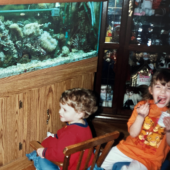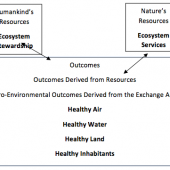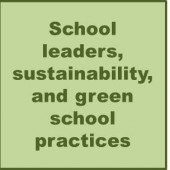
Abstract: Gaining a better understanding of human behavior change is vital to encouraging individuals to adopt an environmentally sustainable lifestyle and to the long-term goal of preserving nature. To explore how life experiences lead to the adoption of environmentally sustainable behaviors, this author turned to autoethnography. Through this reflective method, the author examines their development of environmental identity and their experiences with nature, as they relate to major concepts within the field of conservation psychology, such as ecological literacy, Theory of Planned Behavior, and connection to nature. Leading concepts concerning environmental identity in the conservation psychology literature suggest a very specific pathway for developing environmental identity, and thus pro-environmental behaviors, including experience in nature from a young age, the presence of an environmental mentor, and access to environmental literature. However, the author reveals that there may be other pathways to development of environmental identity, which include virtual environmental mentors (e.g., nature TV show hosts), environmental media (e.g., magazines, documentaries, and internet sources), and other methods of driving emotional connection to nature (e.g., sense of place). Alongside the author, the reader will have the opportunity to consider their environmental experiences and factors influencing their environmental identity, in relation to these major concepts within conservation psychology.
Continue Reading
Abstract: In this paper we compare and contrast the Theory of Planned Behavior (Ajzen, 1985) with Social Exchange Theory (Homans, 1958) as conceptual foundations for eliciting pro-environmental behavior. We reason that Social Exchange Theory provides the better orientation because of its metaphorical power in casting humankind as being in a reciprocal relationship with nature rather than being in a superior position over nature. We illustrate our thinking by discussing ecosystem services (Melillo & Sala, 2008) as nature’s contribution to humankind in return for humankind’s responsible environmental stewardship.
Continue Reading
Little research in educational leadership has addressed school leaders, sustainability, and green school practices. State policies requiring green building and management practices are rapidly becoming more common. However, we know little about school leaders’ attitudes, subjective norms, and perceived behavioral control beliefs relative to green school practices. This study begins a line of research investigating the behavioral intentions of school leaders to engage in green school practices. We report on an elicitation study including a diverse sample of 71 U.S. K-12 school leaders’ responses to open-ended survey questions designed following Ajzen’s Theory of Planned Behavior. In general, the study suggests that participating school leaders believe there are benefits to going green and most stakeholders will support greening efforts. However, limited resources (money, time, information, and personnel) present substantial barriers to leading and managing greener schools.
Continue Reading